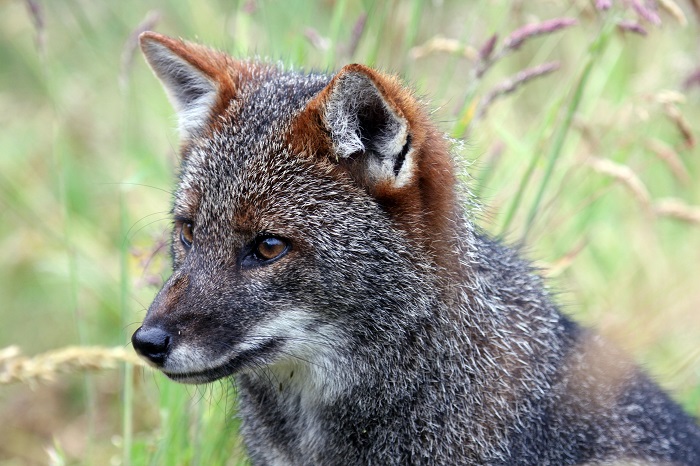ARGENTINA
Climate change is affecting species in Patagonian lakes, according to a new study published in the journal Global Change Biology. Over two years, the researchers looked at how glacial meltwater induced a shift in nutrients for Boeckella gracilipes and Daphnia commutata living in Lake Mascardi near Bariloche, Argentina.
Manure generated from livestock feedlots could fully replace inorganic fertilizers for wheat and other crops, says a study from the Universidad de Buenos Aires. The researchers report that it is possible to partially or fully replace inorganic fertilization using manure from feedlots. Wheat plots fertilized with manure or a mixture of this and fertilizers produced 160% more than the control. The combined treatment of inorganic fertilizers and manure generated one ton more of wheat than inorganic fertilizer applications only, without causing accumulation of salts in the soil and with improved efficiency of nitrogen use.

BELIZE
A workshop was held last week to hear from Latin American indigenous leaders about reducing emissions from deforestation and degradation (REDD). The Mopan Maya community in southern Belize is hoping safeguards will be put in place to conserve rainforest in their region, and that indigenous communities are consulted to ensure their rights aren’t violated in exchange for the cap-and-trade credits REDD+ projects intend to supply.
BRAZIL
Chief Almir Narayamoga Surui of Brazil’s Paiter Surui indigenous community is using high-tech tools to save tribes and forests. His tribe, like many others across Latin America, hope to sell carbon credits to offset fossil fuel emissions internationally. Chief Surui monitors illegal logging, maps the forests and engages in on-line outreach.
The continued expansion of sugarcane plantations in Brazil for ethanol biofuel could lead to regional climate effects, according to a new study published in the journal Geophysical Research Letters. The scientists simulated a five-year scenario wherein land was converted for growing sugarcane and found that the temperature could fluctuate about 2 degrees Celsius between the peak of the growing season and crop harvest. They also found that sugarcane harvest would lead to a decrease in the transfer of water from land to atmosphere.
CHILE
Harvard University is under fire for illegal logging in southern Chile. The university owns at least eleven companies involved in the forest industry in Chile and one has been sued by the country’s national forest corporation CONAF. The company, Agricola Brinzal, is accused of illegally clearfelling 189 acres of native forest and reforesting with non-native eucalyptus trees—a breach of the forest management plan. Agricola Brinzal was created by the Phemus Corporation, a fund used to invest Harvard University’s assets. (Original reporting at CIPER).
A study to be published in the peer-reviewed journal Marine Environmental Research reports on the results of a citizen science project called “National Sampling of Small Plastic Debris” which was supported by schoolchildren from all over Chile who documented the distribution and abundance of small plastic debris on Chilean beaches. While plastic debris was found on all sampled beaches along the continental coastline, samples from Easter Island beaches had extraordinarily high abundances of plastic pieces which reached more than 800 items per square meter. The authors explain this very high abundance by the transport and accumulation of plastic debris in the surface currents of the South Pacific Subtropical Gyre.
According to UNICEF, Latin America is one of the regions of world where the most births by Cesarean section are performed. UNICEF reports that Brazil is at the top of this list; 50% of births are by Cesarean section there. However, many other countries in the region also far exceed the recommended rate (the World Health Organization estimates that in 15% of cases the child will not develop normally). While the report does not report on Chile, national indicators show the same trend. While in 2000, Cesarean sections accounted for 36% of all births, in 2011 this figure reached 48%, reports Gonzalo Leiva. However, behind these average figures hide large percentage differences between public hospitals and private clinics. Thus, the number of Cesarean sections in private clinics exceeds 70% in Chile, while in public hospitals, only 38.1% of births are by cesarean. Thereby, Chile is reaching one of the highest places in the world for births by Cesarean section, says the newspaper El Mercurio.
ECUADOR
After catching a fish he’d never seen before, a fisherman off the Galapagos Islands brought the specimen to the attention of local scientists. The fish belonged to the Uranoscopidae family and hadn’t been seen in the archipelago in a decade, concluded researchers at with the Galapagos National Park Directorate. Citizen science—locals and fishermen cooperating with government scientists—has helped identify four new species of sharks and helped monitor sea cucumbers populations.
MEXICO
Salted black cod is touted for its high nutritional value–omega 3 and 6 fatty acids are essential for humans because the body does not produce them. These polyunsaturated fatty acids dilate blood vessels and hinder platelet aggregation contributing to cardiovascular health. The black cod is caught only on the coasts of Baja California and but the species lacks synchrony between the sexual maturity of females and males. Therefore, the National Fisheries Institute and the Center for Scientific Research and Higher Education is developing broodstock for experimental cultivation and biological studies in an effort to help increase production and market availability of the cod.
Mexico can financially incentivize gay men to take regular HIV tests, says a new study from Brown University. According to a survey given to men aged 18-25 in Mexico City’s red light-district, 70% of men would get regular HIV testing in exchange for $288 a year. The authors point out that a single person getting treated for HIV costs the country’s health system up to $7,000 in drugs alone.
